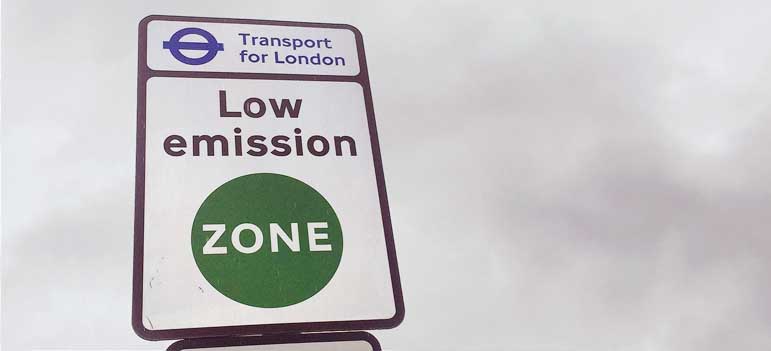An All Party Parliamentary Group (APPG) has published a wide ranging set of proposals for the future of the UK taxi trade.
In a foreword to the paper MP for Ilford North and Chair of the group, Wes Streeting, states that the paper lays out, “practical recommendations intended to put fair competition and the interests of passengers at the heart of the taxi and private hire industry.”
It is important to note that this is not an official paper from the House of Commons or the House of Lords. Neither has not been approved by the House or its committees. The issuers of the paper are keen to avoid confusion and highlight the fact that APPGs are “informal groups of Members of both Houses with a common interest in particular issues.”
Key Recommendations Summary & Analysis
# 1 . To stop the exploitation of cross border hiring
The Government should consider legislating, to create a statutory definition of cross border hiring whereby a journey must “begin or end in the licensing authority where the licence was issued”.
The Government must also, at the earliest opportunity, consult on statutory guidance for taxi and PHV licensing and the proposed guidance should set out a robust set of minimum licensing standards for all licensing authorities to impose.
These standards must include mandatory disability equality training and enhanced DBS checks for both taxi and PHV drivers.
Local authorities should still have the freedom to impose any standards over and above this, should they feel that this is appropriate, in response to local challenges or market conditions, at their own discretion.
Cross border hiring recommendations could work but may be difficult to monitor. The aim to impose minimum standards and to make regulations more consistent on a nationwide basis is something Plan have long advocated.
# 2 . The Government should establish a national database of registered taxi and PHV drivers and operators in conjunction with the DVLA and police.
This would be a relatively simple measure to introduce and, when combined with DBS checks, should help prevent unfit and unscrupulous drivers exploiting loopholes in the current methods of detection. This may only be a very small minority of drivers but they may present a major risk to public safety.
# 3 . The Government should legislate to provide a legally enforceable statutory definition of plying for hire.
The Government must also clarify its position on taxi and PHV regulation and the future of the two-tier system, by issuing its long overdue response to the Law Commission’s 2014 report on taxi and PHV licensing as soon as possible.
The situation has been caused by the blurring of lines by technological developments. However, an answer is long overdue. It will meet objections no matter the outcome but the can has been kicked down the road for far too long by successive administrations.
# 4 . As part of its plans to devolve further powers to local authorities, the Government should consider granting the Mayor/TfL in London, the power to cap the number of PHVs, and any other Mayors and combined authorities who request it.
London now has around 120,000 PHV drivers and TfL has long been trying to tackle a huge escalation in numbers since the emergence of App based operators. With increased regulatory costs and tougher licensing requirements, the cap may come after the issue has finally been addressed via less direct methods.
# 5 . It is vital that all taxis and PHVs are insured to protect passengers and the wider public.
The Government should legislate so that all minicab operators have operators’ insurance to ensure that vehicles have full hire and reward insurance in place at all times. At the very least, hire and reward insurance should be in place for the duration of the licence period and a licence should not be issued without this.
Although we agree with the desired intention of this proposal, we’ve discussed in detail in a previous blog the flaws in proposals for operators insurance. A centralised online database would be a much more efficient means of achieving the overall goal of removing uninsured or inappropriately insured drivers from the road.

# 6 . To incentivise and facilitate take up of the new zero emissions black cab and to support drivers to make the transition to the cleaner vehicles in London and across the country, the Government must work with local authorities to ensure that:
- there is adequate rapid charging infrastructure in place to support the use of the new ZEC taxi;
- the VED regime does not penalise those who purchase the new ZEC taxi;
- Drivers understand what is available to them in terms of grants and subsidies – and that these are readily available to them; and,
The Government should also:
- Consider implementing a national diesel scrappage scheme which applies to black cabs.
- Review the impact that the changes to vehicle excise duty could have on take up of the new ZEC vehicle, and consider creating an exemption for ZEC black cabs from the additional rate of VED charged on vehicles with a purchase price of more than £40,000.
Highlighting the new VED rate sees vehicles pay a £310 annual supplied for 5 years after the second year of registration is a very valid point. This may be an important consideration for drivers opting for the zero emissions capable TX5, whereas the rumoured purchase price of the Nissan version may sneak under the limit.
Readers of this blog will know that we’ve been reporting on the latest ZEC models and funding available for new taxis for some time. We’ve also raised our concerns regarding the lack of rapid charge points. As it stands, zap-map.com shows only eight such charge points in central London. Even the 150 that are scheduled to be in place by the end of 2018 are likely to be insufficient.
If the Government is serious about reducing dangerous emission levels, an increase in infrastructure funding is needed urgently. This, together with a diesel scrappage scheme, would help reduce the transferral process time.
# 7 . In London, the regulator TfL, should review its mechanisms for communicating with both the taxi and PHV trades and look at how these could be improved.
Both trades must also look to take a more constructive and open approach to engage with the regulator. This would allow the regulator to work more closely and effectively with the industries on issues of common concern and to better champion their interests with Government.
A better tone to discussions between trade bodies and the regulator is much needed, but it is a two-way process. There’s no doubt that the regulator faces a difficult challenge in satisfying demands from both sides of the divide, but their communication and consultation processes have not helped. The situation has reached an impasse with the taxi trade regularly demonstrating and the LPCHA referring to their relationship with TfL as being on a “war footing”. Identifying improved working practices that will alleviate conflicts (to some degree) is very much needed.
# 8 . The Mayor of London and TfL should ensure that taxis remain exempt from the ULEZ charge, in recognition of the trade’s efforts to tackle air pollution.
However, when reviewing the congestion charge, TfL should introduce congestion charge for PHV vehicles.
This may be wishful thinking on the part of the trade. It would be difficult to argue to a non-partisan body how the private hire vehicle numbers can be capped, PHVs required to meet emissions standards (albeit by a later date) and also subjected to the congestion charge. This could be a clever negotiating stance from the trade’s lobbyists who may have included the proposal in the knowledge that, if it is taken off the table during talks, they will have been seen to concede on at least one point.
# 9 . The Government should support TfL in its efforts by reviewing the Private Hire Vehicles (London) Act 1998 to ensure that it is fit for purpose for the digital age.
Much like point 3, the world has moved on enormously since the Act was created and legislation should be reviewed and updated accordingly.

# 10 . Licensing authorities and local police should produce a code of conduct for the use of apps by taxi and PHV drivers to sign up to, in order to ensure that they are not using their phones whilst driving and putting passengers and other members of the public at risk.
This is a short term measure to address the dangers associated with the use of apps whilst driving. The Government should also consider including adherence to a code of conduct as a part of national minimum standards.
This is a very sensible proposal to tackle and issue that road safety campaigners have been at pains to point out. Latest figures from 2014 revealed that 21 deaths were at least partially caused by distracted drivers interacting with their smart phones when behind the wheel.
# 11 . All licensing authorities, including the Mayor of London and TfL, should take immediate steps to strengthen PHV regulation, to ensure that all PHV are insured and that their drivers have the skills and knowledge to ensure public safety. These should include:
- Introducing an enhanced driving test for minicab drivers;
- Introducing a limited topographical test for PHV drivers;
- Introducing mandatory disability equality training and an associated test for all PHV and taxi drivers.
The Mayor of London should stand by his decision to introduce an English language test for PHV drivers with both spoken and written elements, in recognition of the importance of both skill sets in communicating with those with additional needs and disabilities. We further recommend that other licensing authorities should follow suit.
The devil is in the detail when it comes to enhanced driving training, limited topographical testing, mandatory disability equality training and both written and spoken language test for private hire drivers. Practicalities of implementation may result in this being more of a wish list from the APPG than something that is realistically achievable in its entirety.
Efforts to introduce many of these measures have fallen down either due to negligence on behalf of the companies charged with conducting the examination or resistance from PH trade bodies and drivers over cost and suitability. The report is also at odds with the findings of the Greater London Assembly who disagree with the need for drivers to possess written language skills. However, the aim to raise standards and make regulations consistent on a nationwide scale is something Plan have long advocated.
The APPG’s report was researched by Newington Communications and funded by its sponsors: Gett, mytaxi and the Licensed Taxi Drivers’ Association. Contributions were made by representatives of the GMB Union and Addison Lee as well as TfL. It will be interesting to see the impact of the report and where it leads. Like many recommendations that have been made to the powers, that may well lead to nowhere.

